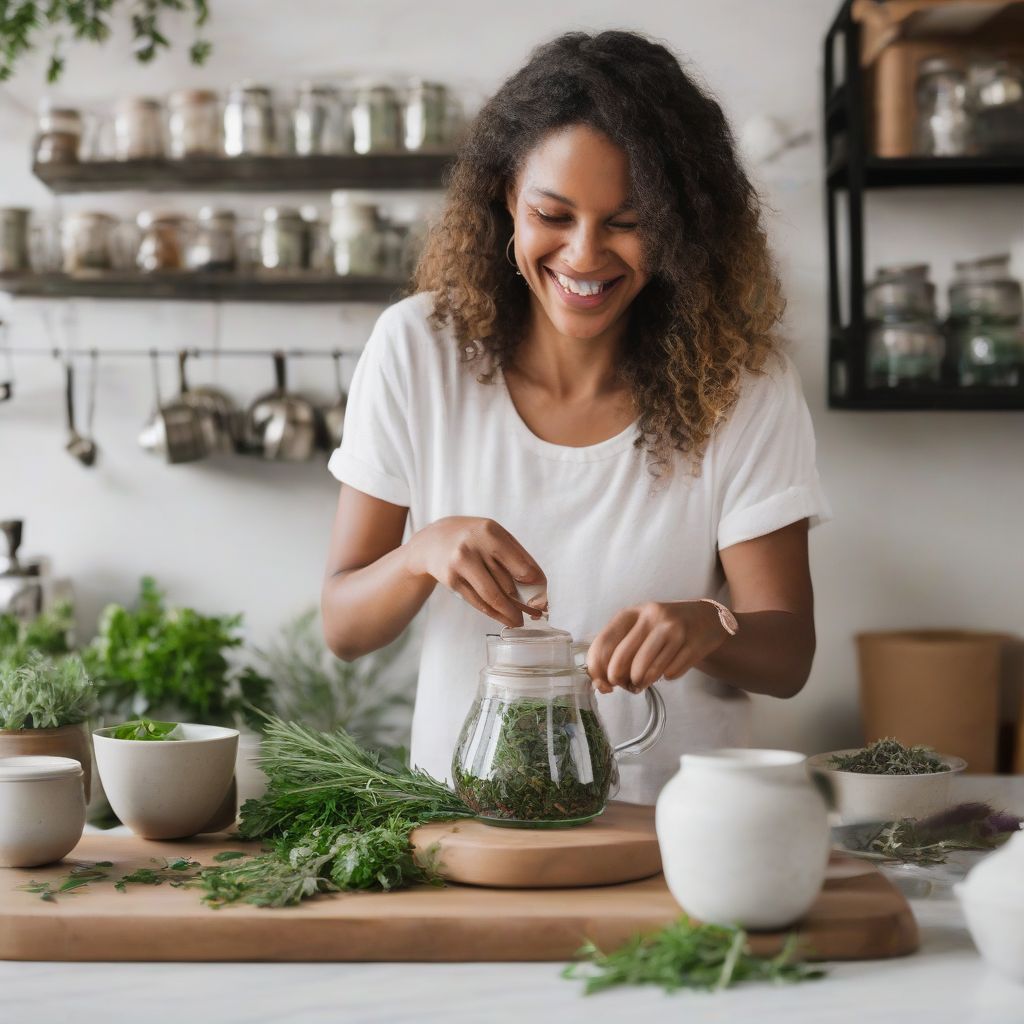Have you ever dreamt of whipping up your own natural remedies with herbs plucked straight from your garden? It sounds idyllic, right? Well, it’s entirely possible! Preparing herbal remedies at home is a rewarding way to take control of your health and well-being. It’s easier than you might think, even if you’re a beginner. Let’s dive into the world of DIY herbal remedies and empower you to become your own home herbalist.
Getting Started with Home Herbalism
Before we jump into making remedies, let’s lay the groundwork for safe and effective herbal preparations:
1. Source Your Herbs Wisely
Just like any ingredient, the quality of your herbs matters. Here are a few sourcing options:
- Grow Your Own: There’s nothing quite like using herbs you’ve nurtured yourself. Start with easy-to-grow herbs like mint, basil, or chamomile.
- Local Farmers Markets: Connect with local growers and ask about their farming practices to ensure your herbs are pesticide-free.
- Reputable Online Retailers: If sourcing locally isn’t feasible, choose online retailers known for their high-quality, organic herbs.
2. Proper Identification is Key
Never use an herb if you’re unsure of its identity. Look for clear labels with both the common and Latin names. A field guide to herbs can be a great investment.
3. Start with Gentle Herbs
Some herbs are potent and require careful dosing. Begin with gentler herbs like chamomile, ginger, or peppermint, which are generally safe for most people.
 Preparing Herbal Tea
Preparing Herbal Tea
4. Dosage and Contraindications
Herbs, while natural, can have potent effects. Research appropriate dosages and potential interactions with medications or existing health conditions. When in doubt, consult with a qualified herbalist or healthcare professional.
Simple Herbal Preparations for Beginners
Ready to get started? These easy methods are perfect for beginners:
1. Herbal Infusions (Teas)
Infusions are a wonderful way to extract the beneficial properties of delicate herbs like leaves and flowers.
How to:
- Use 1 teaspoon of dried herb or 3 teaspoons of fresh herb per cup of boiling water.
- Steep for 5-10 minutes, strain, and enjoy.
Great for: Colds, flu, digestive upset, relaxation (think chamomile, peppermint, ginger)
2. Herbal Decoctions
Decoctions are used to extract properties from tougher plant parts like roots, barks, and seeds.
How to:
- Use 1 teaspoon of dried herb or 3 teaspoons of fresh herb per cup of water.
- Simmer covered for 20-30 minutes, strain, and cool.
Great for: Immune support, digestive issues, skin conditions (think burdock root, astragalus, turmeric)
3. Herbal Tinctures
Tinctures are concentrated herbal extracts preserved in alcohol. They have a longer shelf life than teas or decoctions.
How to:
- Fill a jar halfway with dried herbs.
- Cover completely with high-proof alcohol (vodka or grain alcohol work well).
- Store in a cool, dark place for 4-6 weeks, shaking occasionally.
- Strain through cheesecloth and store in a dark glass bottle.
Great for: Long-term use, acute conditions (dosage varies depending on the herb)
[amazon bestseller=”herbalism for beginners”]
Exploring More Advanced Preparations
Once you’re comfortable with the basics, you can expand your home apothecary with these techniques:
1. Herbal Salves and Balms
These are excellent for topical applications, moisturizing the skin, and soothing muscles. They combine infused oils with beeswax to create a spreadable consistency.
2. Herbal Syrups
Herbal syrups are a tasty way to take herbal remedies, especially for children. They’re made by combining a strong herbal decoction with honey or sugar.
3. Herbal Capsules
Capsules offer a convenient way to take powdered herbs in precise dosages. You can buy empty capsules online and fill them using a capsule-filling machine.
Essential Tips for Success
- Start Small: Begin with one or two preparations at a time and gradually expand your repertoire.
- Keep a Journal: Document the herbs you use, their preparation methods, and any effects you observe. This will help you personalize your herbal journey.
- Safety First: Always research the herbs you’re using and consult with a qualified healthcare professional if you have any concerns.
Conclusion: Embrace the Joys of Herbalism
Preparing herbal remedies at home is a rewarding way to connect with nature and take charge of your well-being. By starting slowly, learning from reputable sources, and prioritizing safety, you can create a personalized home apothecary filled with natural remedies tailored to your needs.
What are your favorite herbs to use in home remedies? Share your experiences and recipes in the comments below! And if you found this guide helpful, consider sharing it with others who might be interested in exploring the world of herbalism.
